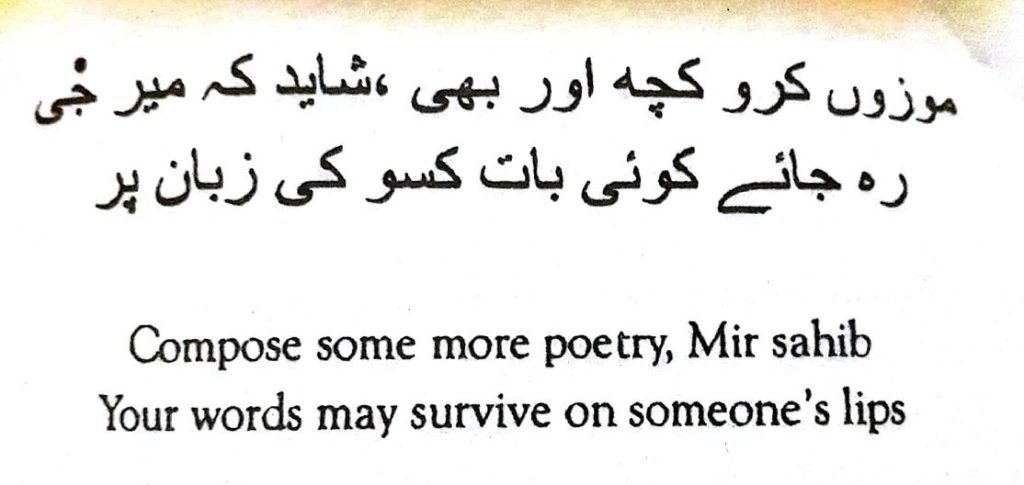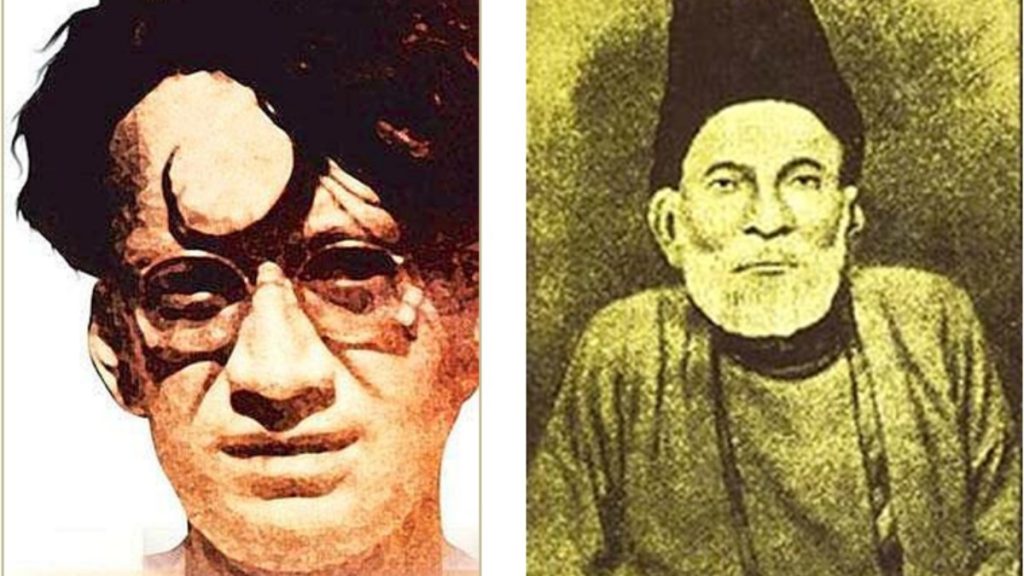“I’m not the flowering of a song, nor the flow of melody
I am the echo of the shattering sound of my defeat”
Dozakhnama, Rabisankar Bal
Dozakhnama: Conversations in Hell is a remarkable novel. It is an amalgam of history and fantasy, narrated by the greatest storyteller Manto and the word maestro Ghalib. The story starts when a journalist is handed over a manuscript by a deranged man, who is still suffering from its archaic heat. Turns out, the manuscript is actually a novel written by Manto in the Urdu language. Since the journalist can’t understand Urdu. He takes the story to a translator in Calcutta, where a ballad between poetry and agony starts. Most often, depicting the life, the work, the passion, and the madness of two literary geniuses, Ghalib and Manto.
In hindsight, Dozakhnama is a book not for your mind but your soul. A reader must take in, bit by bit, the sweetened agony hidden under beautiful prose until it consumes them all.
The Many Tales of Ghalib and Manto:
In Dozakhnama, Saadat Hasan Manto and Mirza Ghalib lie in their respective graves and converse. So, this book is filled with great stories from their lives. The book comprises 533 pages and many chapters. Each chapter is filled with exciting stories (be it of joy or sorrow) from their childhood to youth. In their riveting tales, they pass comments and sometimes praise each other. Ghalib mocks Manto for being snobbish. How come he never wears shoes other than a dozen pairs he bought from Karnal Boot Shop in Anarkali Bazar, Lahore? Or his clothes, why does he always look for the best, most elegant pieces to wear?
Ghalib even questions Manto’s work. To Ghalib, Manto is a heretic, Who with his outrageous stories like Thanda Ghosht, will only spread immorality in society. He then proceeds to ask Manto whether there is any limit to his defiance of the religion. Can he write stories other than those about the flesh relationship between men and women? Will his stories ever go past red light areas? Truly a masterpiece!!
Dozakhnama: A Dive into the History of Subcontinent
Another fascinating thing about Dozakhnama is the historical references found throughout the book. The conversation between the writers is so interesting because they belong to different eras and thus have different philosophies and circumstances. Moreover, this novel sheds light on the atrocities of colonialism. From Mughal Empire to British Raj, the inhumane circumstances created for the commoner, and their consequences are discussed in detail in this book.
Ghalib witnessed the fall of Delhi in 1857 and imprisoned every agony deep into his heart. Which he, time and again, discussed in his poetry.
“Dilli, which was the chosen city of this world, Which the finest people on earth made their home, Has now been ravaged by time and left in ruins This devastated city is where I come from You’re laughing, Manto bhai?”
Rabisankar Bal, Dozakhnama
Then there was Manto, too; the pain of partition was raw in his heart, which he displayed bit by bit like an open wound in his work.
A Goldmine of Urdu Poetry and Ghazals:

Dozakhnama: Conversations in Hell is a goldmine of Urdu poetry and Ghazals. Rabisankar Bal perfectly encapsulates the beauty of the Urdu language with matching prose. Each chapter starts with the poetry of Ghalib, Mir Taki, and other well-known poets of Urdu literature. This novel contains not only information about the lives of literary giants but also their work. Some of my favorite prose from the book are as follows:
“Misery vanishes when you get used to misery
I suffered so much that it became easy”
Rabisankar Bal, Dozakhnama
“Be kind enough to call me any time you want
I’m not the past which cannot come back”
Rabisankar Bal, Dozakhnama
“Like a kite, my heart had once
yearned to fly to freedom”
Rabisankar Bal, Dozakhnama
“Why does time erase me thus, O Lord?
I’m no redundant letter on the page of the world”
Rabisankar Bal, Dozakhnama
Conclusion:
Ghalib concludes that to be a great poet, one must suffer. An aching pain inside your chest is an indication of life. And what Manto goes through is no different, his life is one of a tragedy and suffering. Rabisankar Bal successfully captures this pain on paper. The pain which is masqueraded by humor, poetry, life lessons and everything magical to human beings. Dozakhnama: Conversations in Hell is a remarkable novel with enough heart-wrenching prose for readers to suffer in a pleasant agony. Dozakhnama is a must-read book for lovers of Urdu Literature.

